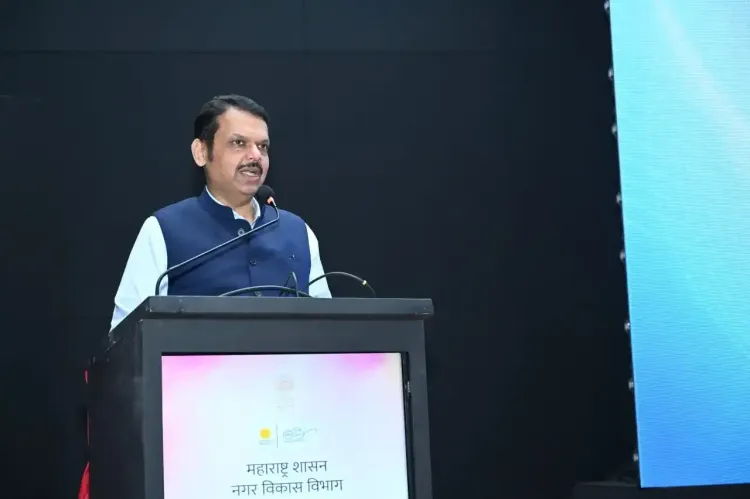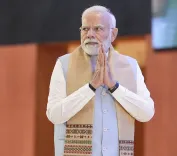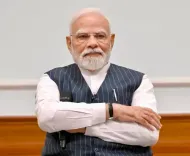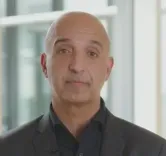Is the Government Prioritizing Urban Development? Maharashtra CM Fadnavis Weighs In

Synopsis
Key Takeaways
- Prioritization of urban development is essential for improving living standards.
- Significant investments have been made in urbanisation over the past decade.
- Collaboration with local bodies is vital for successful implementation of projects.
- Focus on health, education, and employment to attract citizens to urban areas.
- Use of technology and innovative strategies is crucial for sustainable urban growth.
Pune, May 15 (NationPress) The Chief Minister of Maharashtra, Devendra Fadnavis, stated on Thursday that both the Central and state governments are placing a strong emphasis on urban development as a vital driver for overall progress. Over the past decade, substantial investments have been dedicated to urbanisation.
He confirmed that the state will support local governing bodies in implementing effective strategies to address urban issues and enhance facilities for residents.
This statement came during a workshop hosted by the Urban Development Department for Municipal Commissioners and Chief Officers of Municipal Councils.
CM Fadnavis highlighted that Maharashtra ranks as the second largest urban state in India.
"The city's development process is crucial. Citizens flock to urban areas for four key reasons: education, health, employment, and entertainment. However, the lack of a well-structured policy to manage urbanisation alongside growth has led to significant city-related challenges. Approximately 6 crore people inhabit 450 cities across the state, and enhancing these urban spaces could improve the living standards of half the population," he noted.
He stressed the importance of establishing primary health services in cities, urging the implementation of central and state schemes. Efforts should be directed towards ensuring quality education for underprivileged children in municipal schools.
“Regular reviews of water supply and sewage management projects are essential to ensure timely completion and to tackle existing issues. Establishing an efficient water distribution system alongside the introduction of metering will also be crucial. The government is committed to supporting initiatives aimed at resolving these urban challenges,” he assured.
“In recent years, significant funding has been allocated for urban development. New strategies need to be adopted alongside a fresh perspective on delivering goods and services. Urban local bodies must explore alternative funding sources while also improving tax collection. If cities focus on economic growth, residents will be more willing to pay taxes. Additionally, private sector funds can be more readily accessed for well-conceived projects. Sustainable urban development should be our goal,” the Chief Minister added.
He further stated that a comprehensive city development plan can facilitate effective city planning. Well-constructed roads can significantly enhance the city's aesthetics.
"All Municipal Corporations and Municipalities performed commendably during the 100-day initiative. Should the new reforms be executed at the institutional level, administrative efficiency will continue to improve. A new 150-day initiative has been launched, focusing on e-governance and human resource development. The government will offer full support for these efforts. By reforming human resources and leveraging technology, we can enhance administrative effectiveness," CM Fadnavis articulated.
He emphasized the necessity of accelerating development by timely utilizing funds from both state and central sources, leveraging the digital system for maximum efficiency. Ensuring quality control through technology is critical. The implementation of technology in government services will facilitate planning for a 'Developed Maharashtra 2047'. Input from all stakeholders is valuable for this endeavor,” he remarked.
Deputy Chief Minister and Urban Development Minister, Eknath Shinde, emphasized that, “Municipal corporations and municipalities play a pivotal role in the state's development. Equitable growth across cities will prevent developmental disparities, necessitating the resolution of urban issues. With over 5 crore residents in urban locales, addressing these challenges must be a priority.”
“Municipalities should work towards specific goals and integrate artificial intelligence into their operations. In addition to preventing the emergence of new slums, there should be a focus on community development. Regular field and project visits will ensure quality outputs. Providing suitable housing will enhance urban beauty and planning, while also addressing encroachment issues. Initiatives like sewage management, recycling treated water, waste-to-energy projects, and improved public transport systems will significantly beautify cities,” Shinde concluded.







